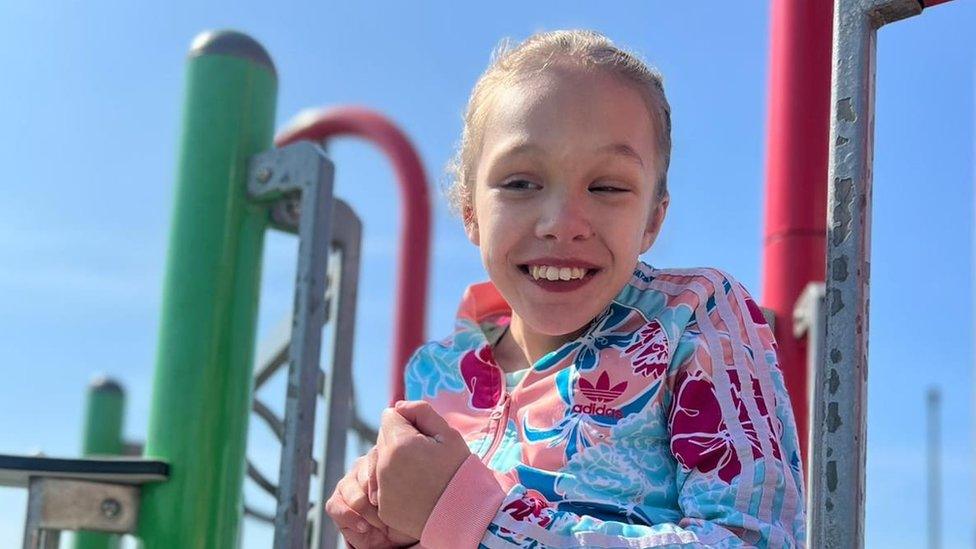Frome dad joins medicinal cannabis campaign at Parliament
- Published
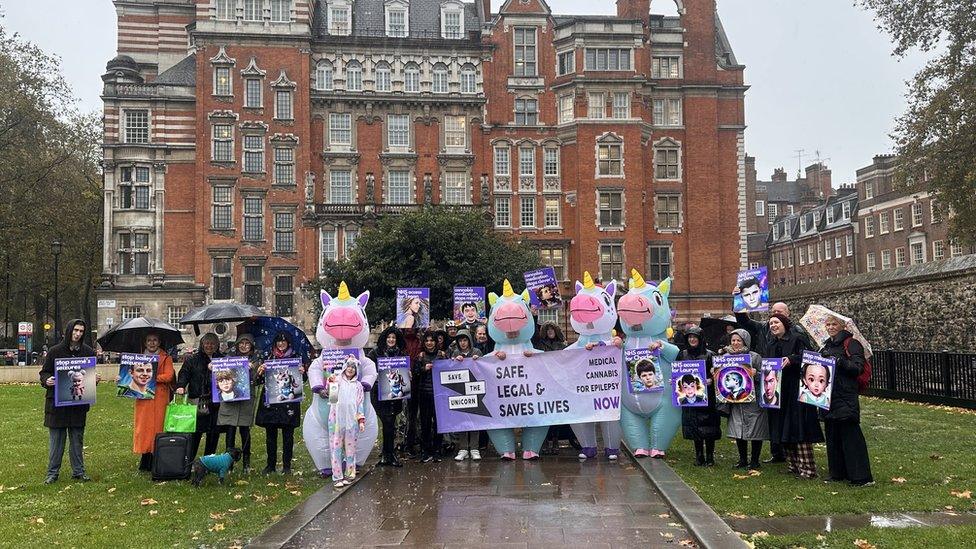
Spencer Carkeet joined several other families at the Houses of Parliament to call for better NHS access to medicinal cannabis
A father has lobbied Parliament for better NHS access to medicinal cannabis for his four-year-old daughter.
Spencer Carkeet, from Frome, travelled to London with other members of the Save the Unicorn campaign group.
Mr Carkeet said medicinal cannabis has greatly improved his daughter Clover's quality of life but it is expensive to pay for through private prescriptions.
The government said more research was needed on such products before they could be rolled out widely on the NHS.
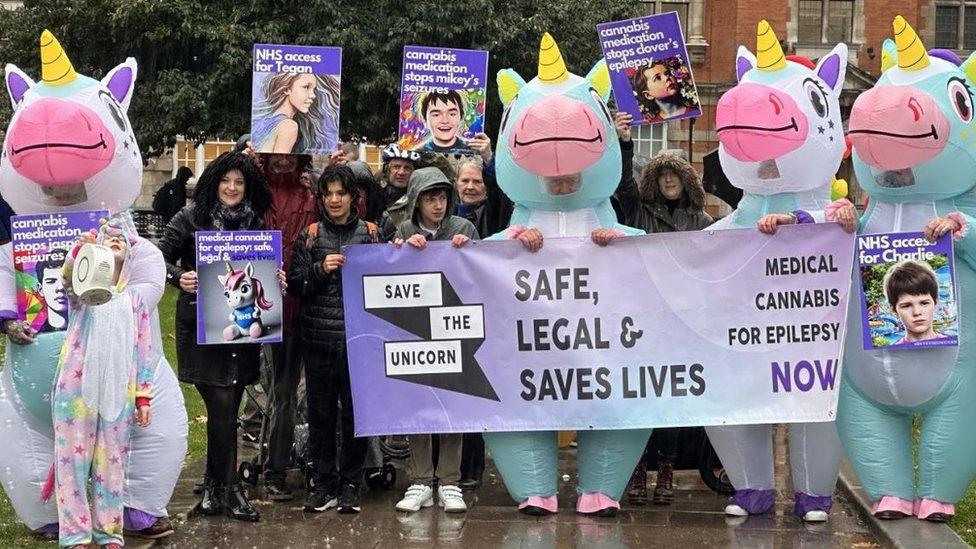
The campaign group is called Save the Unicorn because "all our kids are special and rare" said Mrs Carkeet
Mr Carkeet and his wife Emily said they spend thousands of pounds every year on private prescriptions, often working six days a week to fund the medication.
Mrs Carkeet said: "She has gone from having hundreds of seizures a week to just a handful.
"A seizure could kill her. If we don't have the medication to keep those seizures at bay then goodness knows what may happen. This is something that I lie awake thinking about.
"We have been fighting for NHS access for many years now.
"Without this medicine, our children would be in intensive care or worse and that would cost the NHS hundreds of thousands of pounds every year."
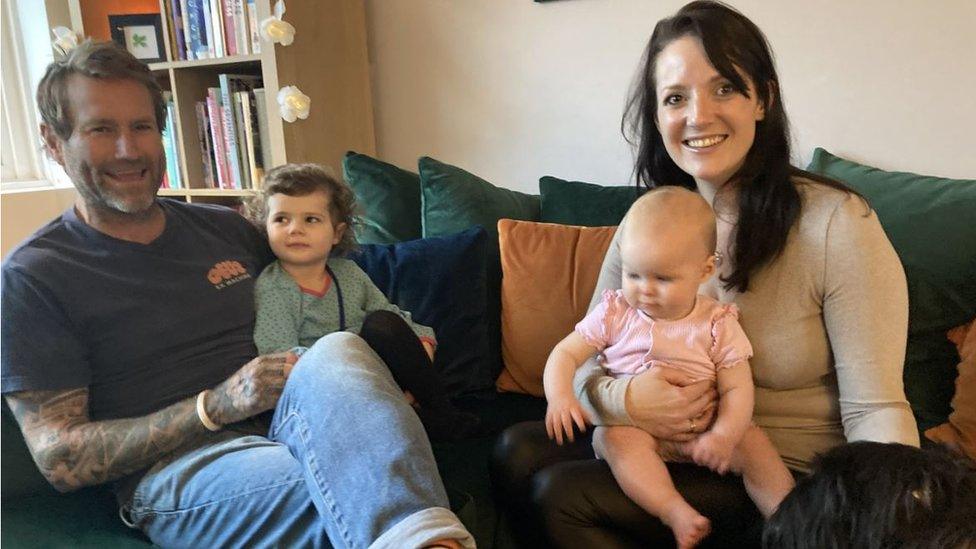
The Carkeets say that medical cannabis has given four-year-old Clover a better quality of life
Cannabis was legalised for medical use in 2018, but since then only five people have been prescribed it on the NHS, three of them children.
Campaigners have accused the government of misleading the public over its availability on the NHS.
Liberal Democrat MP for Somerton and Frome Sarah Dyke joined the campaigners at Parliament on Tuesday.
She said: "We need to move faster and get more trials so that we can get this treatment to the people who need it.
"The law changed five years ago. What we need is the evidence to show that this medicine benefits people."
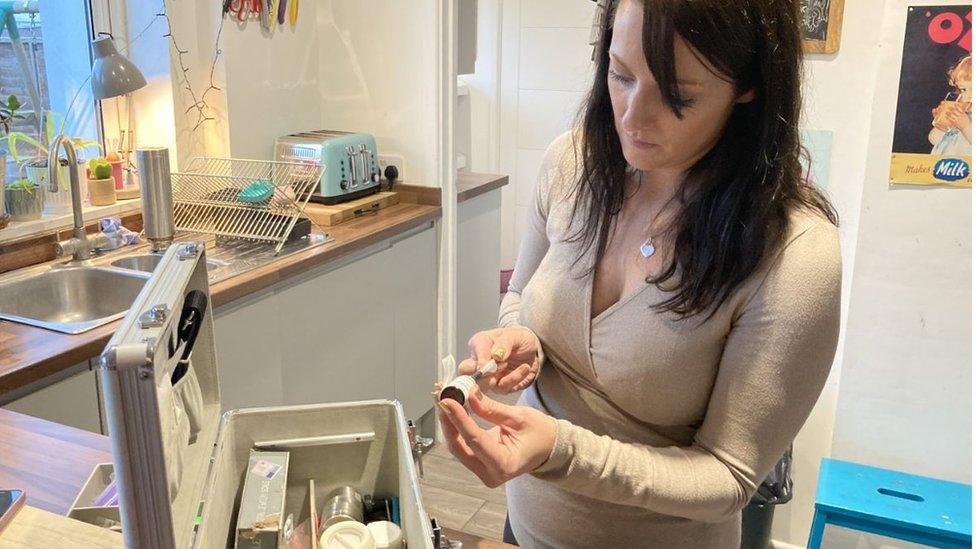
The Carkeets spend thousands of pounds a year on private prescriptions
GPs cannot prescribe medicinal cannabis products independently, but can do so under the direction of a specialist doctor.
There are two licensed cannabis-based medicines available on the NHS - Sativex to treat moderate to severe spasticity in adults with multiple sclerosis, and Epidyolex for the treatment of two forms of epilepsy.
There is also Nabilone (a synthetic form of THC - the psychoactive component of cannabis) to treat severe nausea and vomiting caused by chemotherapy.
Private healthcare providers can prescribe medicinal cannabis for a variety of conditions, such as eating disorders, anxiety and depression.
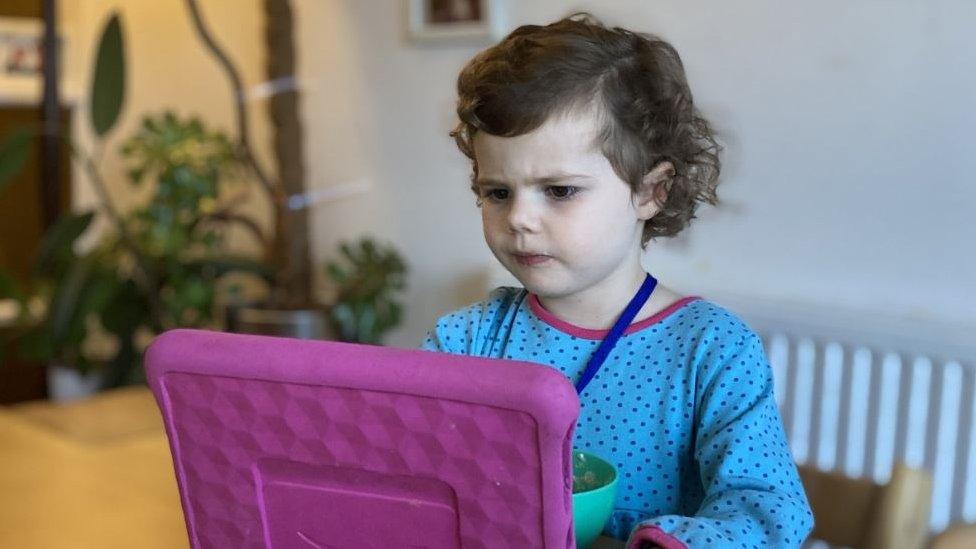
Clover, four, has a severe form of epilepsy
A Department of Health and Social Care spokesperson said: "In 2018 we changed the law to allow specialist doctors to prescribe cannabis-based products, where clinically appropriate, and making it easier to conduct research on these products.
"Licensed cannabis-based medicines are routinely funded by the NHS where there is clear evidence of their quality, safety and effectiveness."We are taking an evidence-based approach to cannabis-based treatments to ensure they are proved safe and effective before they can be considered for roll out on the NHS more widely."
Clinical guidelines from the National Institute for Health and Care Excellence (NICE) say there is a need for more research to support routine prescribing and funding on the NHS.
A spokesperson for NICE said: "We don't want to ban doctors from prescribing medical cannabis to severely epileptic children as this would restrict research, and there is no recommendation against its use.
"However, there is insufficient evidence of the medicines' safety and effectiveness to recommend it for the whole population of people with the condition."This should not be interpreted by doctors as meaning they are prevented from considering the medicines where clinically appropriate."

Follow BBC West on Facebook, external, X, external and Instagram, external. Send your story ideas to: bristol@bbc.co.uk, external
- Published13 September 2023
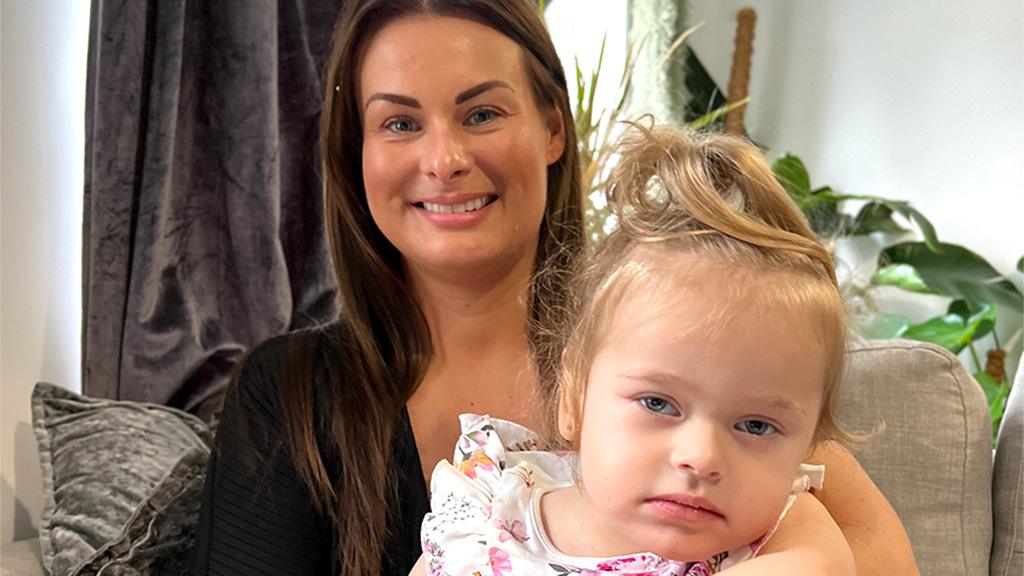
- Published19 January 2023
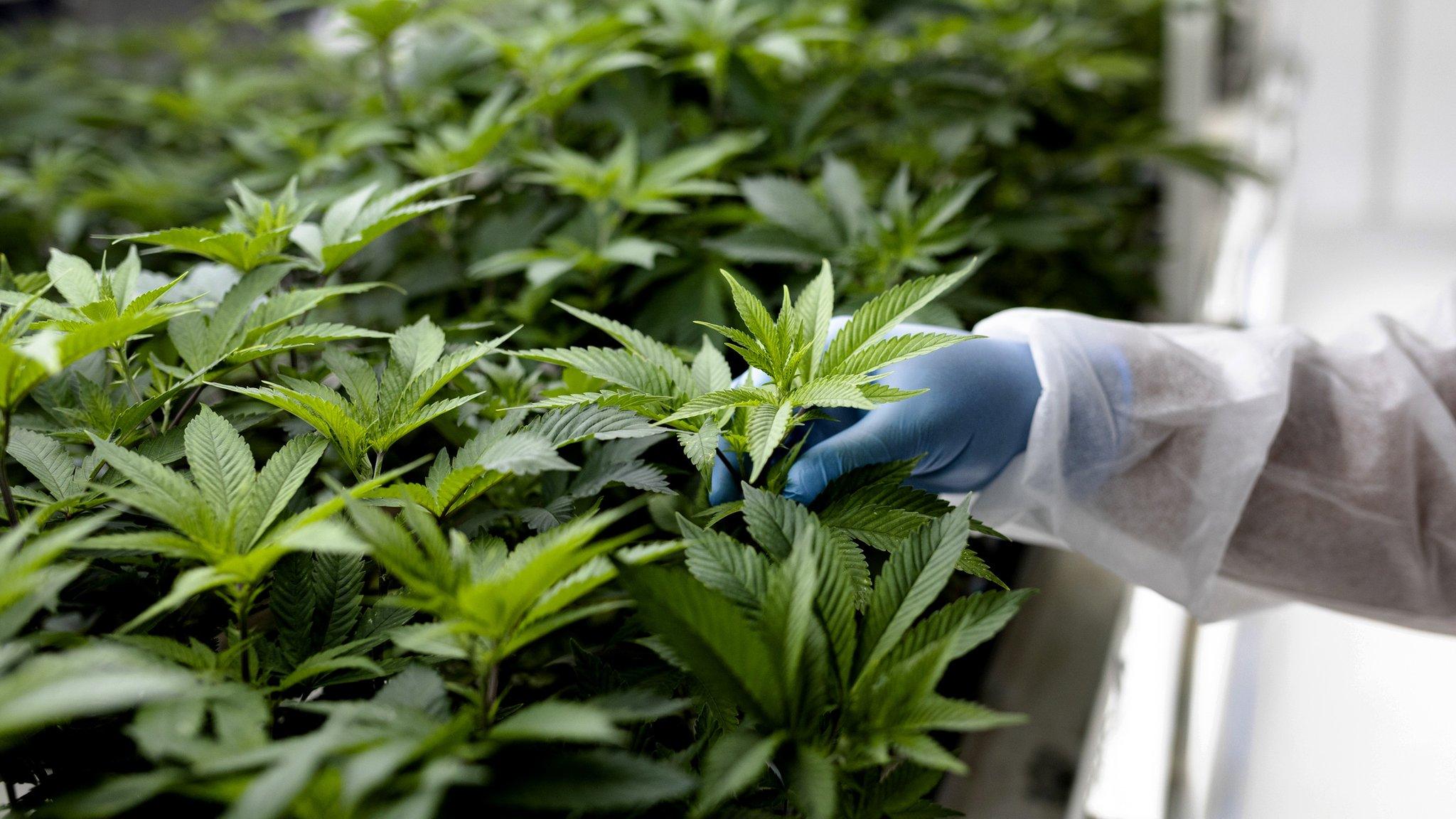
- Published1 June 2023
